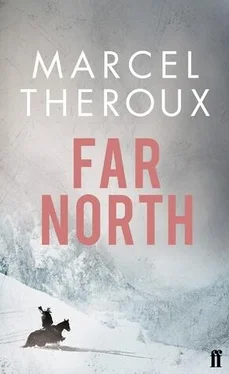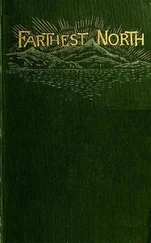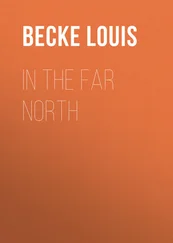The guards around the room handed out sheets of squared paper and pencils.
‘Copy pictures,’ said Mr Apofagato.
They did as they were told. Most of them weren’t much for artwork, and when Mr Apofagato came round to check them, he tutted at their drawings and told them, ‘Write serial numbers, serial numbers important.’
Shamsudin’s surgeon’s fingers made fine copies that were cross-hatched to show shading and got Mr Apofagato clucking with approval.
When the copies had been made, we took away their pencils, and Mr Apofagato unrolled a smaller city map.
‘Many sectors in Zone. This your sector. Mining these locations. Okay? Now copy map. Copy locations.’
When they were done, he scrutinized their work again, then reached into the pocket of his trousers and pulled out a fistful of plastic discs. ‘Now very important. These dosimeters. Very important know your dose. When return Zone, give dosimeters, we calculate dose, can give medicine if high dose. Your health very important to us. You are valuable people.’ This last sentence he said with a weird high laugh as he handed round the plastic discs and supervised pinning them to their dirty lapels. ‘Any questions?’
‘What kind of privileges do we get?’ asked one of the prisoners.
Boathwaite stood up. ‘You get credits that you can exchange for extra food and alcohol.’
Shamsudin raised his hand. ‘How do these dosimeters work?’
‘Reactive film,’ said Mr Apofagato.
Shamsudin raised his hand again. ‘If you know what we’re looking for, and you know where it is, why don’t you get it yourself?’
Mr Apofagato’s face wore a big smile as he answered, ‘Not my duties.’
‘Mr Apofagato is doing valuable work here,’ said Boathwaite. ‘Now, take your notes and your dosimeters, and go to the canteen. You have the rest of the day free. You’ll be leaving for the Zone at first light.’
Shamsudin and Zulfugar seemed uneasy to me, but the others swabbed their plates with hunks of bread, and asked for seconds of meat stew, pointing at their blue dosimeter badges and saying, ‘I am valuable person.’
WE MUSTERED AT dawn by the gates. There were a dozen horses, and several sleds for bringing back what we found. They gave me an old rifle, some shells for it, a decent fur hat, and another set of clothes. It was army-issue gear, never worn, stiff and stale with the smell of potatoes. The gun wasn’t much to speak of, either, but in a pinch I could probably club somebody with it.
One of the prisoners was called Felix and he had a fine singing voice. His voice rang like a bell on the high notes as we rode through the thin light of daybreak.
My horse was the slowest of the bunch, so I ended up at the back, with Zulfugar and Samsudin.
They seemed glum to me, in spite of the good food and the mood of hopefulness among the other prisoners.
At one of the water stops I took the two of them aside and asked what was bothering them. Zulfugar wouldn’t say.
‘He opened his badge,’ said Shamsudin. ‘There was nothing inside it. Just plastic. All that talk of privileges and rest days was just lies to make us drink poison.’
I asked Zulfugar if it was true. In answer, he yanked off his badge, smashed it under his heel, and showed me the innards, empty as a bad nut.
We were talking in low voices. I guess we all thought that if he had rumbled some deception, he would most likely be shot for it.
‘Let me get you another of those,’ I said, and I called to Tolya that one of the prisoners had lost his magic badge.
His reaction confirmed their fears. He rode over to us and instead of slapping Zulfugar’s head, or punishing him for losing it, he reached into his pack, pulled out another, and made a great play of pinning it on him. It was like watching a magic trick you’ve sussed out. Try as he might to misdirect you, the magician can’t shake your eyes off the card that he’s palmed, or the rabbit twitching in the false bottom of his hat.
Zulfugar thanked him, but as we moved off once more, his eyes reproached me and he spat into the snow.
*
I had misgivings about the lies. It made me wonder where on earth we were headed. I was worried for Shamsudin and Zulfugar. And yet the movement itself felt good to me.
The road to the Zone was the old highway to Yakutsk, bearing due north until it met the Lena river and petered out in a splash of rutted gravel. From then on it was a winter road. In the old days, the winter roads were prepared and smoothed as the cold set in, but nowadays we had to take them as we found them. They could be treacherous going and in places sometimes they didn’t freeze properly — because of hot springs near them, or the general warming, or in sections where the river narrowed, and the water surged too fast to be held by the cold.
For days at a time, we had to turn off the Lena and make our way through the taiga. Then it was slow travelling, working our way through snow, until the ice on the river was strong enough to carry us again.
As we drew closer to the arctic circle, the ice on the river thinned once more and we had to turn back into the taiga for the last push north.
We shared rations with the prisoners and kept an easy pace. It was the closest thing to fraternal I’d seen in my days at the base. All the same, there was something that grew heavy and joyless in the mood of the prisoners as we made our progress north.
Usually you couldn’t stop those fellows chatting. Now there seemed to be hours of silence, broken only by the clink of chains and bridles and the crunch of snow.
Every time we stopped to make camp, Tolya pulled a cerberus from his saddle-bag and pointed it around the place. He had brought two of them. Once or twice he gave me one to use on the firewood before we lh the tat to make sure it was clean.
I’d never held one before. It was about the size of a sidearm but dense and top-heavy, with a dial in the top of it and a couple of wires sticking out the back. I got a thrill from using it, but it spooked the prisoners, especially when it gave out a noise.
Most of the trees were clean and safe to use, but there were copses of them that made the cerberus chirrup. It was the same as at Buktygachak: poison had got into the fibre of things. Radiation had blown this way across the land. The trees had leached it up from the soil. It was locked into them, for now, but breathing their smoke would burn your throat and bray the inside of your lungs to mush. Whatever grew out the soil there would harm you if you ate it. And any creatures that fed there would be poisoned too. One day, that place will be clean again, but it will be long after my lifetime.
*
Two nights after we left the Lena, we were woken by the smell of smoke and the crackle of woods blazing. We’d camped in the lee of a stand of trees.
That night there had been long discussions between Tolya and one of the other guards, a man named Victor. It seemed that one of them wasn’t too keen on the place. We camped there anyway, but we gathered the firewood from further away.
When he saw the flames in the darkness, Tolya straight out panicked. His cerberus was going crazy from the smoke, howling and wailing like a beast in a trap.
The prisoners were up and panicking too, shouting about being poisoned.
We struck camp then and there in the darkness, moving out of the path of the smoke, and travelling north, until at daybreak the burning forest was behind us and its coils of black smoke formed a huge cloud in back of us with a flat top like an anvil.
The faces of the prisoners looked bloodless and drained in the half-light from bad sleep and fatigue, so we stopped and rested for the remaining daylight hours.
The mood in the camp that night was sour as wormwood.
Читать дальше












